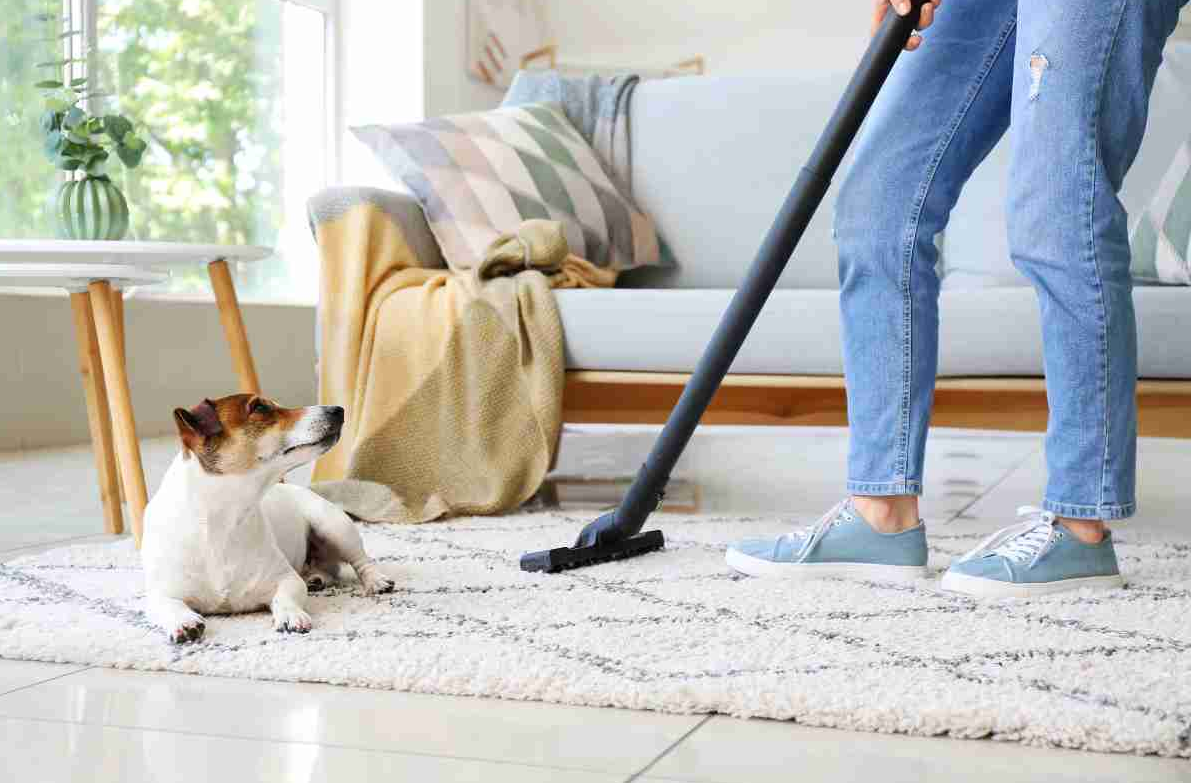The Hidden Health Benefits of a Clean Home
A clean house is really important for your health, not only about looks. Imagine arriving in a place where everything is in order, allergies are avoided, and the air is fresh. It's not only about feeling orderly; consistent cleaning can have actual health advantages ranging from betterment of mental well-being to enhancement of air quality.
You are not alone if you have ever felt relief once you have cleaned. Clean surroundings might help you breathe easier, lower tension, and even promote better sleep. Whether your cleaning is basic decluttering, dusting, or vacuuming, these easy chores can significantly affect your mental as well as physical state.
This article will discuss the sometimes disregarded health advantages of maintaining a clean home and the reasons behind their worth of effort. With a little more cleansing, your health could surprise you with how much better it is!
What Are The Hidden Health Benefits Of A Clean Home?
Here are some of the hidden health benefits of a clean home you should know about:
1. Reducing Allergens in the Home
Reducing allergies is one of the key purposes behind consistent cleaning. Over time, pollen, pet dander, and dust could gather in your house. In those with asthma, these allergens can aggravate symptoms and set off allergies. Frequent carpet and surface cleaning will assist in controlling allergies. Also, routinely cleaning bedding and running air purifiers are quite important.
Regular grooming of pets might assist in lowering the dander output from them into your house. Reducing allergies becomes even more crucial in households, including children. Often crawling on the floor, young children put objects in their mouths.
2. Improving Indoor Air Quality
Your health depends critically on good indoor air quality. Among the several health difficulties that poor air quality can cause are headaches, tiredness, and respiratory problems. Regular cleaning of your house helps to improve the air quality by eliminating dust, mould, and other contaminants that, over time, could accumulate.
Commonly hiding in carpets, drapes, and furniture, dust and filth can compromise the air you breathe. Frequent cleaning of these places helps to enhance the quality of air in your household every day. Furthermore, the cleaning chemicals you employ influence indoor air quality. Choose natural cleaners free of dangerous chemicals that spew into the atmosphere.
3. Preventing the Spread of Germs and Illnesses
Among the best ways to stop germs from spreading is regular cleaning. Surfaces can support hours or even days of life for germs and bacteria. Regular cleaning of shared places, including bathroom sinks, kitchen countertops, and doorknobs, will help greatly lower the chance of disease spreading.
Given the increased ease of germ transmission during cold and flu season, this is especially crucial. On high-touch surfaces, using disinfectant wipes or sprays helps guard your family from being ill. Maintaining a clean kitchen is especially vital since quickly spreading microorganisms can occur during food preparation.
1. Supporting Mental Health and Reducing Stress
Your mental health can benefit from a neat and orderly house. Mess and clutter could aggravate tension and anxiety. It may not be easy to concentrate and unwind in a busy atmosphere. Maintaining a clean and orderly home helps you to create serene surroundings that support serenity and wellness.
Furthermore, helping to lower stress is the sense of accomplishment and control that cleaning provides. Moreover, neat surroundings allow you to be more efficient. When your house is in order, you will find it simpler to focus and finish projects. Just cleaning can be a kind of physical exercise that helps you feel better and lower your tension.
2. Promoting Better Sleep
Even your sleeping quality might get better in a tidy house. One may find it more difficult to unwind and fall asleep in a messy and disorderly bedroom. Maintaining a clean and free-from-distractions bedroom will help you relax.
Frequent washing of your bedding and floor vacuuming will assist in removing allergens and dust mites that might otherwise aggravate your nighttime breathing. Another aspect of improved sleep hygiene is sleeping in a neat and orderly room. A tidy environment tells your brain it's time for relaxation and winding down.
3. Boosting Physical Activity
A wonderful kind of exercise is house cleaning. Sweeping, mopping, and vacuuming call for physical exertion, which keeps you moving. Although it might not substitute a whole workout, cleaning helps you reach your daily physical activity goals. Maintaining excellent health depends on regular physical activity; cleaning offers a chance for your body to be active.
Apart from enhancing your general condition, cleaning can be a kind of deliberate exercise. Focusing on the current work will help you to be present in the moment and help to lower stress. Furthermore, cleaning is productive; hence, not only are you working on your body, but you are also working toward a concrete goal.
1. Reducing the Risk of Accidents
A neat and orderly house helps to lower the danger of accidents. Particularly for young children and older adults, cluttered floors and scattered objects might cause trips and falls. Maintaining open passageways and orderly arrangement of objects makes access simple and helps to avoid house mishaps.
Furthermore, helping to lower the danger of slips and falls is consistent cleanup of spills and preservation of dry surroundings. Arranging tools and ingredients in the kitchen helps to create safer and more effective cooking conditions. Maintaining a clean and safe house also depends critically on keeping sharp objects and possibly harmful chemicals out of reach of youngsters.
Conclusion:
Ultimately, keeping a clean house is more important for your health and well-being than for appearance. Frequent cleaning guarantees a better living environment by helping to lower allergies, improve air quality, and stop the bacteria from spreading.

